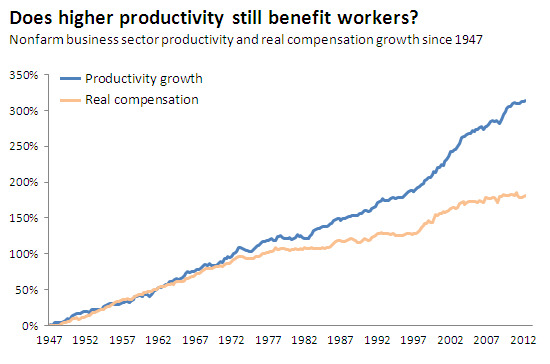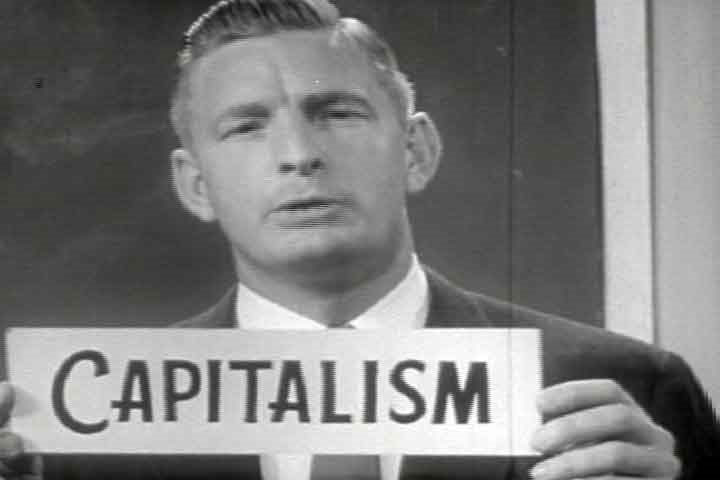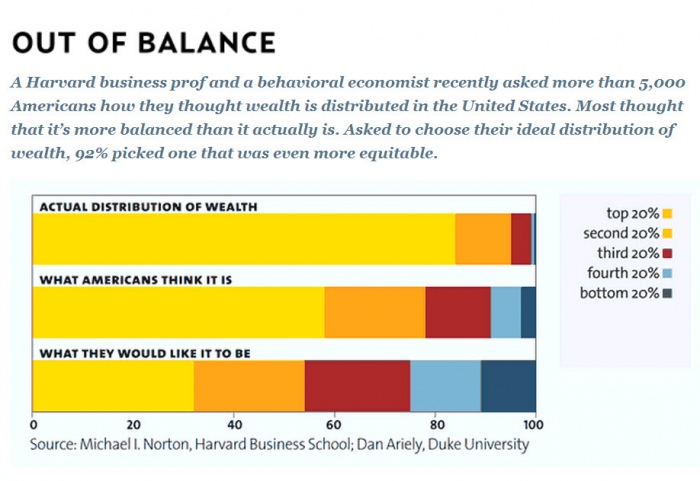The Case for a Working Capitalism
I stumbled on the following quote from economist Ha-Joon Chang over the holidays:
Once you realize that trickle-down economics does not work, you will see the excessive tax cuts for the rich as what they are—a simple upward redistribution of income, rather than a way to make all of us richer, as we were told.
Chang’s quote reminds us of the initial promise of supply-side economics, that a rising tide would lift all boats, and the subsequent failure to deliver.
It also made me think about one of the most powerful conservative frames: redistribution of wealth.
Chang turns the tables on the typical conservative argument and he gave me an idea how to take things a step further.
First, the conservative strategy.
Redistribute means to change a distribution. In conservative circles, redistribute has come to mean taking from one group and giving to another with the government as the “redistributor.”
Redistribution is theft. It is a powerful government taking from people they deem to have too much, or more than they need, and then just giving it to people they deem worthy of receiving it, and there’s always a deal at the end: “If you’ll vote for me, I’ll keep giving you this stuff.”
In the conservative view, capitalists are little more than victims in the hands of an angry government.
To understand the true power of this language though, consider the following distribution of wealth chart developed by Michael Norton and Dan Ariely:
The chart shows the distribution of wealth that people would like, what we think it is, and what we think it should be. One of the messages of the chart is that people find the actual distribution of wealth morally wrong.
Yet most people would also tell you that they are against the government redistributing money to achieve what they would like it to be.
Why? Because of the conservative moral argument.
Bear with me for a second. I’m not arguing the conservative case, but it’s important to understand how it works.
When you convince people something is morally wrong, even when people also desire a better result, they don’t believe this result should be achieved by the alleged morally incorrect action—in this case, the government redistributing wealth.
The redistribution frame seems morally wrong to conservatives because it goes against the conservative moral view that markets regulate themselves.
So we have a situation where two immoral situations lock horns: the rich owning the vast majority of our country and government redistribution of wealth.
Both come off as unpalatable because conservatives have framed the fix as morally reprehensible. The distinction is important though because they haven’t found a way yet to justify the vast inequality.
Norton and Ariely’s chart demonstrates that people would like to see a more equitable distribution. However, they’re also often opposed to the process of “redistributing” wealth.
The case for a working capitalism
This distinction sets up a moral argument for change.
What we want, and what everyone wants, is for the distribution to be better to begin with. We want a system in which the profits are divvied up more equitably, not just to a few people at the top.
We don’t want redistribution; we want fairer distribution.
In a working capitalist system, wages would have kept up with productivity increases and profits would be distributed much more equitably.
If we want better capitalism, and we know it can be achieved because we have achieved it before, we’re going to need this moral argument to get there.
First, as Ha-Joon Chang did, we need to point out the reality of supply-side economics. If the benefits don’t “trickle down,” how is it anything more than a handout to the rich?
Simply put, it is redistribution of wealth. Upwards.
We’re pretty good at this moral critique and plenty of evidence exists to show that benefits are not trickling down.
We also, however, need to make the moral case for something better—fairer distribution—a capitalism that benefits more than just the 1 percent.
Ravi Batra, an economist at Southern Methodist University, frames his argument in terms of two different capitalist systems: one that rewards only the wealthy and one that benefits everyone.
Batra argues that inequality rises when government policy does not allow wages to catch up with increasing labor productivity. In this situation, profits soar, but consumer demand falls leading to overproduction and layoffs. The combination of layoffs and absent job creation leads to spiraling economic inequality.

(Source: Federal Reserve Bank of St. Louis, Bureau of Labor Statistics)
The chart above illustrates the gap between wages and productivity. Wages tracked productivity until roughly the mid-1980s. At this point, government policies such as deregulation and deunionization put downward pressure on wages and the wage gap develops.
A working capitalist system would look much different. In a working capitalist system, government policy is aimed at allowing wages to catch-up to productivity. A few quick examples:
1. Enforce anti-trust laws to break up monopolies and increase competition
2. End tax breaks that primarily benefit the wealthy
3. Separate businesses and state; get the money out of politics
4. Reinstate Glass-Steagall
5. Eliminate incentives which encourage the outsourcing of high-paying jobs in manufacturing and services
6. Tax capital gains at the same rate as income
7. Eliminate anti-union legislation
These recommendations (and others) would eliminate the downward pressure on wages so they would better match productivity improvements.
Policy recommendations are the easy part though.
Conservatives have spent 30-plus years building a moral justification for a vastly different capitalist system: one that benefits those at the top. They have done this through compelling moral arguments such as “free markets” and “redistribution of wealth.”
If we want something better, we need to come up with better moral arguments for change.
We typically do a good job highlighting the moral problem (economic inequality) but we need to do a better job making the moral case for a working capitalism. We don’t want “redistribution”; we want fairer distribution.
Cross posted at: The Washington Spectator












